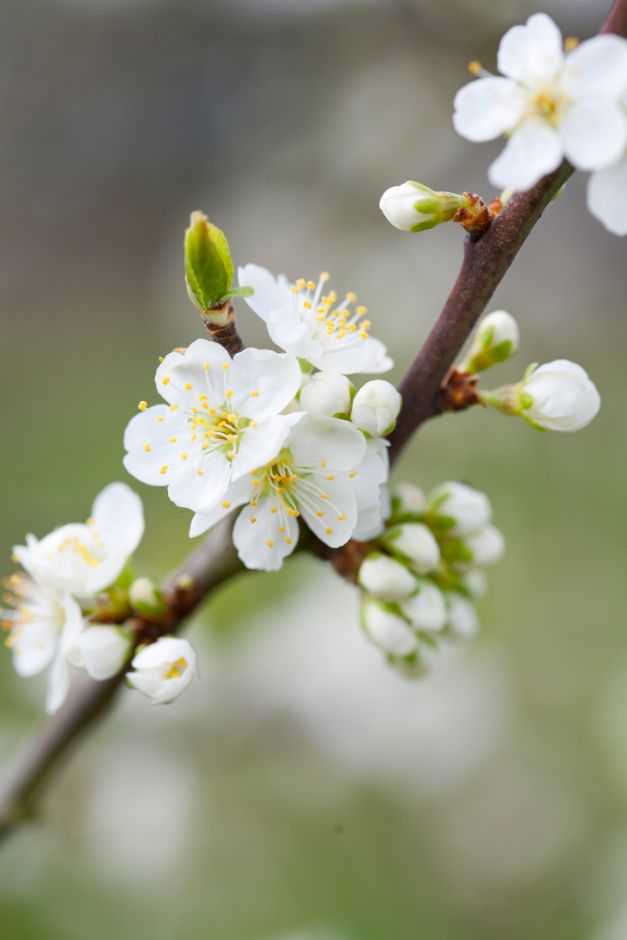Prunus domestica 'Early Rivers' (C)

plum 'Early Rivers'
A small, rounded, dark blue plum, best for culinary use, cropping in late July. It is partially self-fertile, but crops much better with a partner; pollination group 3
Size
Ultimate height
2.5–4 metresTime to ultimate height
5–10 yearsUltimate spread
2.5–4 metresGrowing conditions
Moisture
Moist but well–drained, Well–drainedpH
Acid, Alkaline, NeutralColour & scent
| Stem | Flower | Foliage | Fruit | |
| Spring | White | Green | ||
|---|---|---|---|---|
| Summer | Green | Blue | ||
| Autumn | ||||
| Winter |
Position
- Full sun
Aspect
South–facing or West–facing
Exposure
Sheltered Hardiness
H5Botanical details
- Family
- Rosaceae
- Native to GB / Ireland
- No
- Foliage
- Deciduous
- Habit
- Bushy
- Genus
Prunus can be deciduous or evergreen trees or shrubs with showy flowers in spring, and often good autumn foliage colour. Some have edible fruit in autumn, and a few species have ornamental bark
- Name status
Accepted
- Horticultural Group
- Cherries suitable for culinary use have a tart flavour and are best cooked or made into a puree
How to grow
Cultivation
Grow plums in a moist, but well-drained soil. An acidic soil (pH 6-6.5) is ideal. Keep a weed-free area of at least 60cm radius around trunk. Thin fruits if necessary. Irrigate in dry periods. Less susceptible to frost damage than many other cultivars
Propagation
Propagate by chip budding or grafting on rootstock for fruit
Suggested planting locations and garden types
- City and courtyard gardens
- Cottage and informal garden
- Wildlife gardens
- Wall side borders
- Edible fruit
Pruning
Pruning plums; regular pruning required in summer, according to tree form. Plums can be grown as cordons, pyramids, bushes, or as trees
Pests
Plums suffer from plum aphid, caterpillars, fruit tree red spider mite, brown scale, plum moth and bullfinches may be problematic
Diseases
May be susceptible to peach leaf curl, silver leaf, bacterial canker, blossom wilt and honey fungus
Get involved
The RHS is the UK’s gardening charity, helping people and plants to grow - nurturing a healthier, happier world, one person and one plant at a time.
